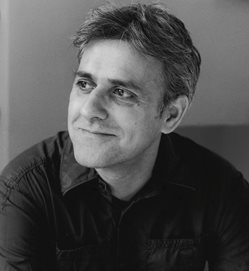We spoke to poet and longtime poetry prize judge Daljit Nagra to hear his thoughts on poetry, prizes and publication.
 Daljit Nagra
Daljit Nagra
Daljit Nagra’s poem Look We Have Coming to Dover! won the Forward Prize for Best Individual Poem in 2004. His first collection, of the same name, published by Faber & Faber, won the Forward Prize for Best First Collection in 2007 and the South Bank Show Decibel Award in 2008.
In 2014 he was selected as a New Generation Poet by the PBS. In 2015 he won a Royal Society Travelling Scholarship. His poems are on GCSE, A’ Level and undergraduate syllabus’ and he is featured in the forthcoming Norton Anthology of English Verse.
He has judged The Samuel Johnson Prize, The Costa Prize and the David Cohen Prize. His poems have been published in The New Yorker, Poetry Chicago, The LRB, The TLS and The New Statesman. He has written for The Guardian, The FT and he has performed in Canada, India, Slovakia, The Netherlands. He is the inaugural Poet in Residence for Radio 4/4 Extra. He currently teaches at Brunel University London.
You were an Eric Gregory judge last year. How did you find the judging experience and did it differ from the judging processes for the other awards you’ve judged?
It was a hugely rewarding and enjoyable experience. The standard is much higher for this competition than other competitions I’ve judged and it is hard to pick a few winners from the many superb entries. This is strange, given that the entrants are younger than I find in other competitions.
"Given the range of poetry on the current scene I think more prizes would ensure attention was being drawn to a wide range of poetries."
How does reading so much by young poets make you feel about the current state of poetry? Sarah Howe and Andrew McMillan have both won major literary prizes this past year for their debut collections of poetry. Do you think poetry is well represented enough in literary prizes? Could more be done to encourage this?
I feel the state of poetry is in extremely good health. You mention Sarah and Andrew, and in a way they epitomise the best of diversity on the poetry scene. One writes a profoundly hyphenated verse that explores the West in relation to China while the other writes poetry about gay experiences that take on a universal authority about relationships. Given the range of poetry on the current scene I think more prizes would ensure attention was being drawn to a wide range of poetries.
Sending work out, whether for prizes or publication, can be daunting. How did you gain the confidence to put yourself out there as a poet? And are there extra barriers for BAME writers and those born outside the UK?
I think there are still house styles at play with poetry magazines and some publishers so it can be frustrating for good poets who do not fit the bill. I think it’s important to not become bitter about this reality but to attend courses run by poets who you feel might not appreciate your work. This is a chance for you to learn from their attitudes and for them to appreciate what you have to offer. I worry that sometimes certain groups of poets reaffirm their own exclusion from the mainstream and stick together rather than continue to broaden outwards.
In recent years there has been a lot of attention given to diversity, or the lack thereof, on shortlists and longlists. What are your thoughts on this issue?
I have written a few pieces about this issue but my main concern remains about the white liberal poet who appears to embrace poets from all backgrounds and thinks he or she is really open minded. I’ve seen these poets at close hand in competitions and so on always pick a white poet as some sort of default. They do not feel they should have to consider ‘taste’ because they feel their taste is the centre-ground when it’s an exclusive and a privileged one.
"I’m always mindful of not responding to my taste of poetry but to that of the widest possible audience."
We’re hoping to change the rules for some of our prizes so they are open to those who are not British by birth or were born overseas. What effect do you think this will have?
Currently the Eric Gregory winners are almost always white so any departure from this would help to strengthen the possible range of winners.
You’re the first poet in residence on Radio 4, how do you feel your work there is raising the profile of poetry and encouraging new audiences and readers?
One of my roles is to trawl through the BBC archive of poetry and present a poetry programme each week for two years on Radio 4 Extra at 5pm, Poetry Extra. I’m always mindful of not responding to my taste of poetry but to that of the widest possible audience. Thus far I have picked programmes about poets from different backgrounds, cultures and poetic styles. I think this range enriches us all.
If you were going to be stranded on a desert island and could only take three books, which would they be? Oh the trick is one of them has to be one you haven’t yet read. (Yes, this island has very strange rules.)
I would take three poetry books. The Complete Poems of Seamus Heaney and Emily Dickinson for their warmth and imaginative grandeur. The book I haven’t read but would love to is Edmund Spenser’s The Fairie Queene. I read a section of it at university and loved it but never followed up this enthusiasm which I will have to once Eric Gregory has abandoned me on an island.